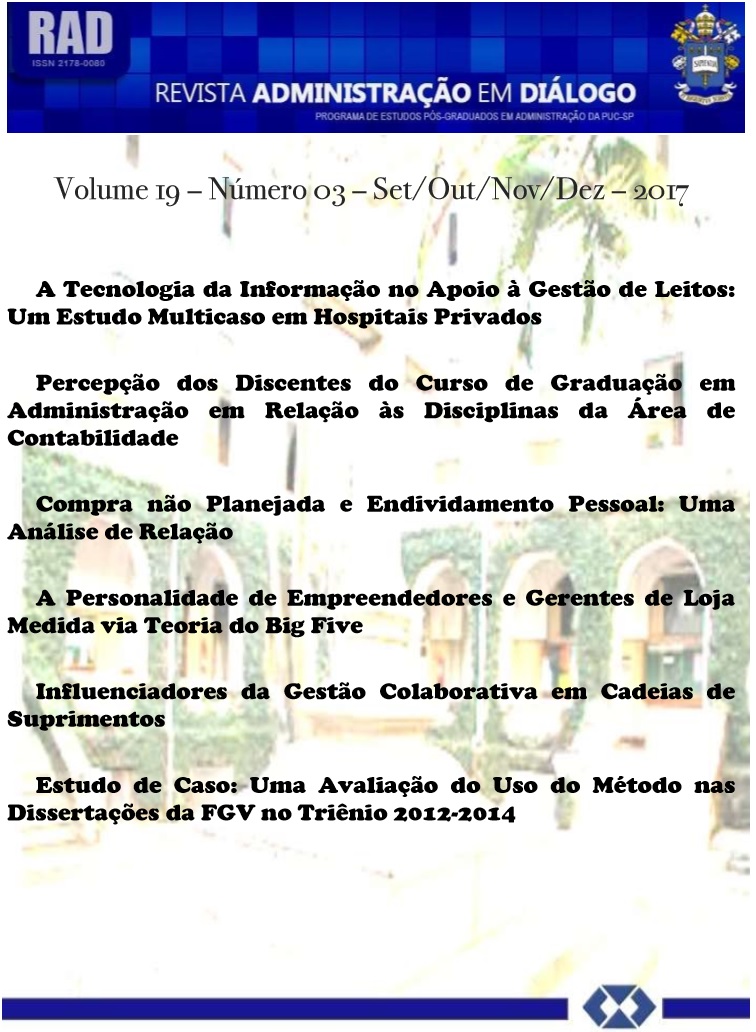Compra não Planejada e Endividamento Pessoal: Uma Análise de Relação
DOI:
https://doi.org/10.23925/2178-0080.2017v19i3.32758Palavras-chave:
Compra por Impulso, Comportamento do Consumidor, Processo de Decisão de Compra.Resumo
A literatura de compra por impulso e endividamento vêm sendo estudada separadamente por décadas, principalmente em estudos na área de marketing e finanças. Sendo assim, esta pesquisa propõe um estudo multidisciplinar entre os fenômenos de compra por impulso e endividamento pessoal. Logo, o objetivo central deste estudo foi identificar se há relação entre a compra por impulso e o endividamento pessoal no varejo tradicional. Para alcançar esse objetivo, realizou-se uma pesquisa quantitativa, descritiva, com corte transversal e do tipo Survey. A amostra contemplou 435 clientes de uma loja. Os dados foram coletados no ambiente de uma loja varejista de calçados no interior do Espírito Santo - Brasil. As relações entre as variáveis foram analisadas por meio de regressões múltiplas. Os resultados apontaram evidências de que, para os respondentes, a compra por impulso pode comprometer sua renda, mas não necessariamente o endividamento pessoal é proveniente da compra não planejada.
Downloads
Publicado
Como Citar
Edição
Seção
Licença

Este obra está licenciado com uma Licença Creative Commons Atribuição 4.0 Internacional.







